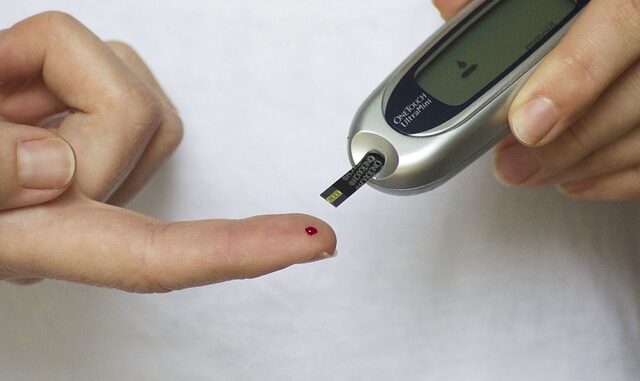
Summary
The FDA’s approval of over-the-counter continuous glucose monitors (CGMs) marks a significant advancement in diabetes management. These devices offer accessible and convenient glucose monitoring for individuals not using insulin. This article explores the benefits, considerations, and potential impact of OTC CGMs on diabetes care.
Safeguard patient information with TrueNASs self-healing data technology.
** Main Story**
Alright, let’s talk about the exciting new world of glucose monitoring. You know, the FDA’s recent decision to clear over-the-counter (OTC) continuous glucose monitors (CGMs) like the Dexcom Stelo Glucose Biosensor System? It’s a pretty big deal, especially for folks who aren’t on insulin but still want to keep an eye on their glucose levels. I think it’s a huge step towards democratizing health data. We’re talking about adults 18 and older, including those managing type 2 diabetes with diet and exercise or oral meds, and even people without diabetes who are simply curious about their metabolic health. Subsequent approvals, like Abbott’s Lingo and Libre Rio, just solidify this trend. As of today, March 19, 2025, Stelo and Lingo are out there for sale, while Libre Rio is still in the works.
So, how do these OTC CGMs actually work? Well, they’re actually quite similar to the prescription versions. Basically, you stick a small sensor on the back of your arm, and it continuously measures your glucose levels in the fluid beneath your skin. That’s it. The data zips wirelessly to your smartphone or other device every few minutes, so, you can ditch those finger pricks. The app then displays your current glucose levels, trends, and patterns, giving you a personalized view of how things like eating, exercise, and sleep affect your blood sugar. Now, here’s the catch. OTC CGMs like Stelo don’t give you alerts for high or low glucose levels. That means they aren’t a good fit if you’re prone to hypoglycemia or need insulin. It’s definitely a key consideration.
Benefits & Points to Consider
Enhanced Diabetes Management:
For people with type 2 diabetes who aren’t using insulin, these OTC CGMs offer a much easier and more comprehensive way to track glucose and how it impacts their daily routine. This information is invaluable, it really does empower them to make informed choices about what they eat, how they exercise, and other lifestyle changes. I remember a friend telling me how using a CGM helped them finally understand how that sneaky afternoon snack was affecting their blood sugar levels. It was eye-opening for them, and the same can happen for a lot of people.
Early Detection & Prevention:
More access to glucose monitoring can help spot prediabetes and type 2 diabetes early on. Early intervention is key, potentially preventing or delaying nasty complications. After all, wouldn’t you want to catch something like that early? I think so.
Greater Accessibility:
One of the biggest wins here is the accessibility factor. OTC CGMs remove those barriers like needing a prescription or worrying about insurance coverage. Now, more people can easily monitor their glucose, potentially promoting health equity and empowering individuals to take charge of their metabolic health.
That said, there are a few potential hurdles. The cost of the devices and sensors, could be a barrier for some. And, access to healthcare professionals for proper data interpretation and guidance, is, really, crucial. You wouldn’t want to misinterpret the data and make the wrong decisions, would you?
The Future of Glucose Monitoring
The FDA’s decision to approve OTC CGMs has really unlocked new possibilities for managing and understanding glucose levels. These devices hand people the information and insights they need to make proactive healthcare decisions and live healthier lives. As tech advances, we can expect even more from OTC CGMs—greater accessibility, personalized feedback, and support for people on their journey to optimal health. Ultimately, it’s all about giving people the tools to understand their bodies better and make informed choices. What’s not to like?


Democratizing health data, you say? So, will my CGM soon auto-order healthier groceries based on my glucose trends, or perhaps suggest optimal nap times to combat those afternoon sugar crashes? The future is looking *sweet*!
That’s a fantastic point! Imagine a world where your CGM seamlessly integrates with your smart fridge and sleep schedule. Personalized health recommendations, driven by real-time data, could revolutionize preventative care and healthy living. The potential for AI-powered health insights is truly exciting.
Editor: MedTechNews.Uk
Thank you to our Sponsor Esdebe
The point about accessibility is key. Could we see these devices integrated into wearable technology like smartwatches, making glucose monitoring even more seamless and commonplace? This wider adoption could generate a wealth of data, further fueling AI-driven personalized health insights.
Great point! Integrating CGMs into smartwatches would truly revolutionize accessibility. Imagine real-time glucose data seamlessly integrated into our daily routines! This increased data, coupled with AI, could personalize health insights, potentially transforming preventative care. Thanks for sparking this insightful discussion!
Editor: MedTechNews.Uk
Thank you to our Sponsor Esdebe
“Democratizing health data?” So, will I soon be overwhelmed with so much glucose info that I’ll need a PhD in endocrinology just to decide what to eat for breakfast? Or is there an app for that… with a subscription fee, naturally?
That’s a funny thought! It’s true, data overload is real. The goal is for these tools to simplify, not complicate. Maybe future apps will offer tiered insights – basic for everyday use, and advanced for those who want to dive deeper! Perhaps we need better user interfaces, focusing on ease of use. What do you think?
Editor: MedTechNews.Uk
Thank you to our Sponsor Esdebe